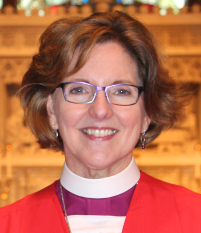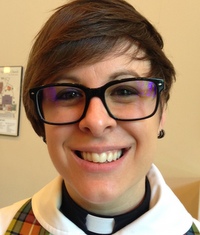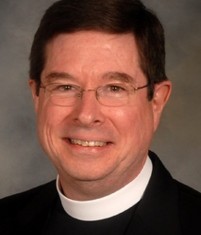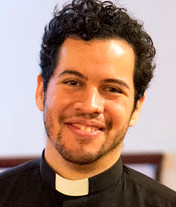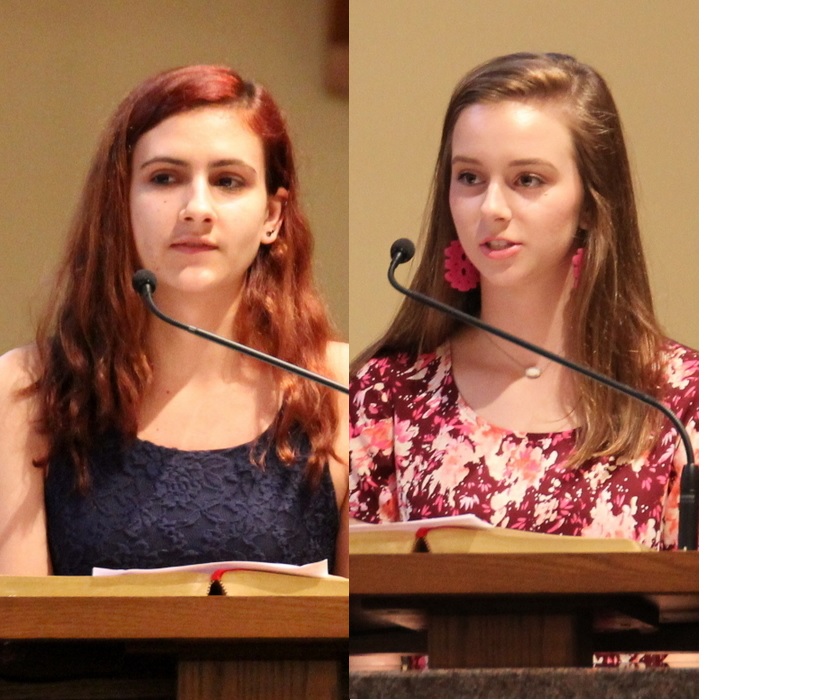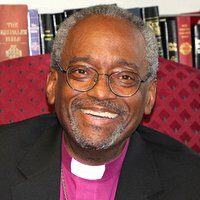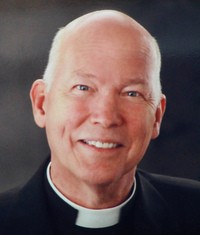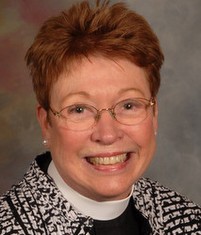The Rt. Rev. Anne Hodges-Copple visits St. Paul’s and reflects on spiritual growth (Mark 4:26-34): “If you’re a good farmer, you don’t just think about the harvest this summer, you think about what you’re doing to get ready for the next season, and the next, and all the seasons to come.”
Sermons (Page 43)
The Rev. Adrienne Koch reflects on Mark 3:20-35: “Most folks prefer their chosen family over the one that they’ve been given. ‘Who are my mother and my brothers?’ This is the question Jesus asks in today’s Gospel reading.”
The Rev. George Adamik considers today’s Gospel reading (Mark 2:23-3:6) and the message of Pentecost: “We all speak different languages when it comes to this experience of faith. How do we continue to be a Pentecost, how do we continue to be reborn anew as we reach beyond our world, not to speak our language but to speak the languages of those who perhaps can understand us in new ways? We can only do that by coming to know this world beyond us.”
The Rev. Javier Almendárez Bautista considers Nicodemus (John 3:1-17) and the work of Jean Vanier: “I wonder if in the moments where we each feel the ground shifting beneath our feet, when someone stands before us and challenges the way we think, feel, and act in the world, whether we could hear Jesus in their words, beckoning us forward, urging us again and again to be born anew. I wonder if we, like Nicodemus, could sit more often with the discomfort of not being the expert and truly listen to the Spirit’s movement among us.”
On Youth Sunday, high school seniors Sarah Schertz and Emma Dressel reflect on their experiences at St. Paul’s.
The Most Rev. Michael Curry, Presiding Bishop and Primate of the Episcopal Church, speaks on the power of love at the royal wedding of Prince Harry and Meghan Markle at St. George’s Chapel in Windsor Castle.
Javier reflects on John 17:6-19. “Years ago, during my first years of seminary, I took my first class in Greek, one of the languages you need to study in order to read ancient manuscripts of scripture. And it was my first fall in North Carolina, which felt an awful lot like summer in Seattle, so the idea of climbing down to a basement classroom to rehearse strange words and grammar and verb conjugations wasn’t exactly ideal.”
The Rev. George Adamik reflects on a trip to the Jersey Shore, our relationships with one another, and the community of the early church (Acts 10:44-48, John 15:9-17).
The Rev. Carr Holland reflects on John 15:1-8 and his own childhood in a segregated society: “When children ask their little questions of life and share their observations of life, they are in their own way saying ‘Help me find my root. Are these things I notice good? Do they give me life? Do they come from God or from some other place?'”
The Rev. Candy Snively shares a personal story about a remarkable act of love: “Laying down our lives isn’t so much about dying for someone else as it is living for someone else, putting their needs ahead of our own as an act of love. And that kind of act of love is the basis for a little story I’d like to tell you about.” (Today’s Gospel reading: John 10:11-18)

